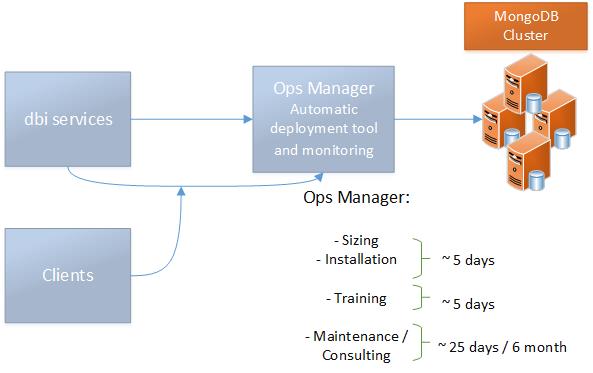Tuesday, October 6th 2015, I attended to MongoDB Days France in Paris. The presentation was directly organized by MongoDB (10gen).
Several presentations have be done to show how to use and deploy MongoDB in real cases. MongoDB is a NoSQL database that provide high availability, data sharding and good performances in specific contexts.
The event started with 2 global sessions (marketing presentation), to present which big companies use MongoDB and what are their use cases? For instance, Bosch uses MongoDB for its big project of IoE (Internet of Everything) to collect and store all data from several sources. We also attended to the presentation of the MongoDB Cloud Manager. As Oracle, MongoDB also has its own cloud platform. Concerning the price of the cloud manager: $39 / server per month.
Then the following sessions were oriented for MongoDB developers, to understand the schema design of an application that uses MongoDB, the document data model, the operators and data types, etc… The important information of this session was the presentation of the join concept of MongoDB, the aggregation concept with the “$lookup” operator but especially the technical presentation of the new MongoDB storage engine: WiredTiger. All of these concepts must be explained in the (dbi services) MongoDB documentation.
After that, most of sessions focused on the introduction of MongoDB tools. The most valuable tool for us is the Ops Manager. This tool allows to be more productive, as mentioned by the MongoDB expert. It’s “The best way to manage MongoDB in your data centre”. I should test it to confirm this citation but the demo was very interesting and convincing. Ops manager also contains best practices for the SLAs. It’s the easiest way to scale your architecture. This graphical tool uses scripts to deploy automatically an architecture and monitor it. Backups are also available with Ops Manager (continuous or incremental backups). After a discussion with a MongoDB expert of what we want to do within dbi services with MongoDB and other NoSQL technologies, below a picture that we can suggest to our future customers. dbi services must be able to install and deploy MongoDB with the Ops Manager.
Ops Manager allows to:
- Automatically deploy an architecture (MongoDB cluster)
- Manage, monitor and back up the architecture
- Upgrade
- Scale-out the cluster
To conclude, I was surprised by the quality of the sessions to get some knowledges about MongoDB and how this powerful database is used in many cases. Most of people present to the event were developers and specific DBAs MongoDB (maybe NoSQL in general) doesn’t really exist.
Finally, our actually work to standardize NoSQL databases may be very interesting for companies that want to use NoSQL databases.

![Thumbnail [90x90]](https://www.dbi-services.com/blog/wp-content/uploads/2022/08/DWE_web-min-scaled.jpg)